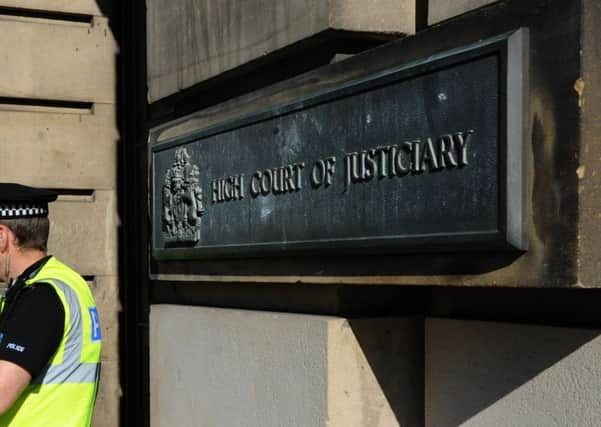Legal professionals must stay free to act


I have now produced a number of articles under the banner of the Scottish Law Agents Society. It is clear from correspondence that most people have no idea who or what is the Scottish Law Agents Society. That is not surprising.
The professional body for solicitors is the Law Society of Scotland which was created by Parliament in 1949. From then on, solicitors had to join the Law Society of Scotland in order to practise law. Prior to that, there was no compulsory national body for solicitors in Scotland. However, since at least 1884, when the Scottish Law Agents Society was formed, lawyers have recognised the need for a compulsory, national body.
Advertisement
Hide AdAdvertisement
Hide AdAs long ago as 1902, the Scottish Law Agents Society produced a Solicitors (Scotland) Bill with a view to setting up a compulsory professional body. Although there were some statutory developments during the ensuing years it was not until 1949 that parliament created the compulsory body.
That might have been seen as job done for the Law Agents Society, which could well have shut up shop and left matters to the long-awaited compulsory body. That was particularly the case when the compulsory body, the Law Society of Scotland, produced generation after generation of highly capable and responsible leadership. This brought about a reliable and highly respected roll of solicitors.
Nevertheless, the original national body, the Scottish Law Agents Society (Slas) remained in existence. Indeed, as recently as 2007, this Society was granted a supplementary Royal Charter by the Queen clarifying the qualifications for membership and providing the society’s council with additional constitutional powers.
The reason for this extended longevity is that some solicitors have been careful to distinguish between the respective natures of the two bodies. The Law Society of Scotland is a parliamentary body subject, ultimately, to the will of the legislature.
In 2007, the Law Society protested to parliament against certain of the terms of the Legal Profession and Legal Aid (Scotland) Bill. In response, parliament inserted a new section intimating that any Law Society officials who failed to comply would go to jail. The protest vanished.
On the other hand, Slas, formed entirely within the legal profession under Royal Charter of Queen Victoria and outwith the administrative control of parliament, remains free to state the case for an independent profession, no matter how unwelcome this may be in parliamentary quarters.
Parliament went on to decree that the solicitors’ profession should be regulated by a special committee within the Law Society in which solicitors were excluded from both the majority and the chair. The Law Society, despite being the official, national body for solicitors, had nothing to say. This may be of little interest to the public at large, but it is that public which depends for its access to justice upon the endurance of an independent legal profession. This independence reflects the constitutional requirement for the separation of powers within the state. Parliament, as the body which makes the laws, should not at the same time control the constitutional organ which applies the laws. That has long been recognised as a recipe for arbitrary power, inconsistent with the rule of law.
The Law Society of Scotland has been and continues to be regarded as an excellent regulator of the legal profession. Some solicitors feel, however, that its proximity to parliament requires the profession to maintain its own, independent professional body.
Advertisement
Hide AdAdvertisement
Hide AdThat position is reflected in other professions. The medical profession is regulated by the statutory body, the General Medical Council which supervises the education and training and professional discipline of the profession. Membership is compulsory. Most doctors subscribe to their own professional bodies such as the British Medical Association. Teachers are regulated by the General Teaching Council but most join their own professional body, such as the Educational Institute for Scotland. In ironic contrast, the majority of solicitors in Scotland do not in fact subscribe to their own independent body and prefer to leave matters to the compulsory, statutory body. • Michael Sheridan is secretary of the Scottish Law Agents Society
SEE ALSO